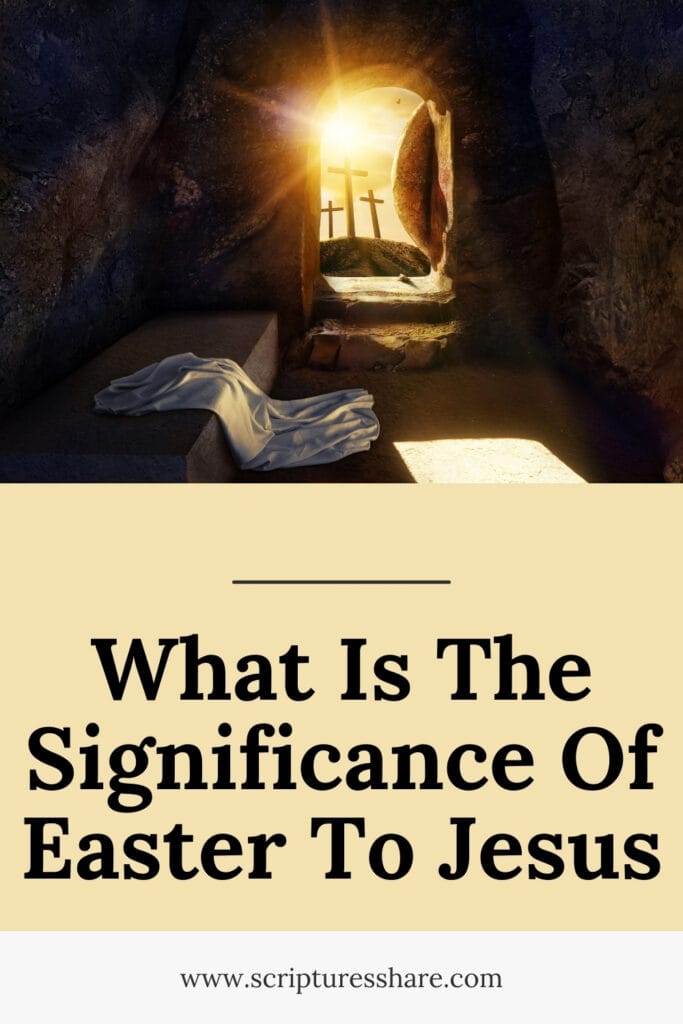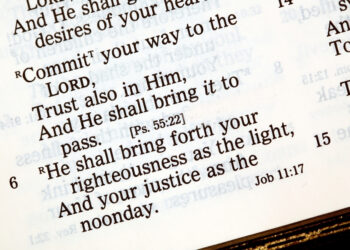No products in the cart.
What Is The Significance Of Easter To Jesus
This post contains paid and/or affiliate links. I make a small commission at no extra cost to you. Please see our Privacy Policy.
Easter is very important in Christianity because it shows Jesus’ mission on Earth. It celebrates Jesus Christ’s resurrection three days after He died. This event is key to the Christian faith, showing His victory over sin and death.
It proves Jesus is divine and the promised Messiah. His resurrection is a miracle that shows His power and love for humanity.
The Historical Context of Easter and Its Connection to Jesus
Easter’s history goes back to Jesus’ death and resurrection in Jerusalem over 2,000 years ago.
He was crucified during the Jewish Passover, fulfilling Old Testament prophecies. His sacrifice is seen as the ultimate deliverance, like the Jewish tradition of Passover.
His resurrection proved His teachings and authority, despite opposition. It showed His power over earthly powers, giving hope to His followers.
Easter is more than a historical event; it’s a living proof of Jesus’ ongoing influence.
“Prophecies Fulfilled by Jesus’ Resurrection”
| Old Testament Prophecy | New Testament Fulfillment | Significance |
|---|---|---|
| Psalm 16:10 (“You will not abandon me to the grave”) | Acts 2:31-32 (Peter’s sermon) | Confirms Jesus’ divine mission |
| Isaiah 53:5 (“He was pierced for our transgressions”) | John 19:34 (Jesus’ crucifixion) | Shows His sacrifice for sin |
| Hosea 6:2 (“On the third day He will raise us up”) | 1 Corinthians 15:4 (Resurrection) | Validates His power over death |
The Theological Importance of Easter for Jesus’ Followers
Easter is the heart of Christian faith, showing salvation, atonement, and eternal life. Jesus’ resurrection proves His divine nature and the power of His sacrifice.
Through His death and resurrection, He forgave humanity’s sins and offered grace.
The Easter story teaches forgiveness, renewal, and victory over death. It promises believers they will also experience resurrection and eternal life. This hope guides Christian worship and inspires a life of faith and devotion.

The Symbolism of Easter in Reflecting Jesus’ Teachings
Easter is full of symbols that reflect Jesus’ teachings. The empty tomb shows His victory over death. The cross is a symbol of His sacrificial love. The Easter egg represents new life, like being “born again” in spirit (John 3:3).
The Paschal candle symbolizes Christ as the Light of the World, guiding believers. These symbols remind Christians of Jesus’ messages of redemption, hope, and transformation.
“The Symbolism of Easter in Christianity”
| Symbol | Meaning | Biblical Reference |
|---|---|---|
| Empty Tomb | Victory over death, resurrection | Matthew 28:5-6 (“He is not here”) |
| Cross | Sacrificial love, redemption | John 3:16 (“For God so loved…”) |
| Easter Egg | New life, rebirth in Christ | 2 Corinthians 5:17 (“New creation”) |
| Paschal Candle | Christ as the Light of the World | John 8:12 (“I am the light…”) |
| Lamb of God | Jesus as the sacrificial Lamb | Revelation 5:12 (“Worthy is the Lamb”) |
Easter’s Impact on Jesus’ Message of Love and Redemption
Easter shows the essence of Jesus’ ministry—unconditional love and redemption. His crucifixion was the ultimate act of selflessness, showing His love for humanity.
The resurrection proved His sacrifice was not in vain, giving humanity a path to God.
This love inspires believers to show grace to others, living out Jesus’ teachings. Easter is not just a celebration but a call to a lifelong commitment to radical love and forgiveness.
The Role of Easter in Understanding Jesus’ Mission
Easter shows Jesus’ mission was to save the world. His resurrection proved He was the Son of God and overcame death.
For Christians, Easter proves God’s faithfulness, making Jesus’ teachings, such as peace and eternal life, true.
This event tells believers to keep Jesus’ work alive. They must share the gospel and show His love.
The Great Commission (Matthew 28:19-20) comes from Easter, giving Christians the power to spread hope.
Easter as the Promise of Eternal Hope and Salvation
Easter is all about hope. Jesus’ resurrection means death is not the end but a start to eternal life with God. This hope helps Christians face challenges, knowing they will rise in glory like Christ.
Easter makes us think about God’s deep love and faith’s power. It shows Jesus’ teachings on mercy and redemption are just as important today as they were 2,000 years ago.
Final Thought: Easter as the Heart of Christian Faith
Easter is more than a historical event; it’s the heart of Christianity. It confirms Jesus as the Savior, strengthens His teachings, and offers hope.
For believers, Easter is a call to let the resurrection’s power renew their faith and guide their actions.
As Christians worldwide celebrate Easter, they share a timeless truth: Christ has risen, and in Him, all things are made new.














